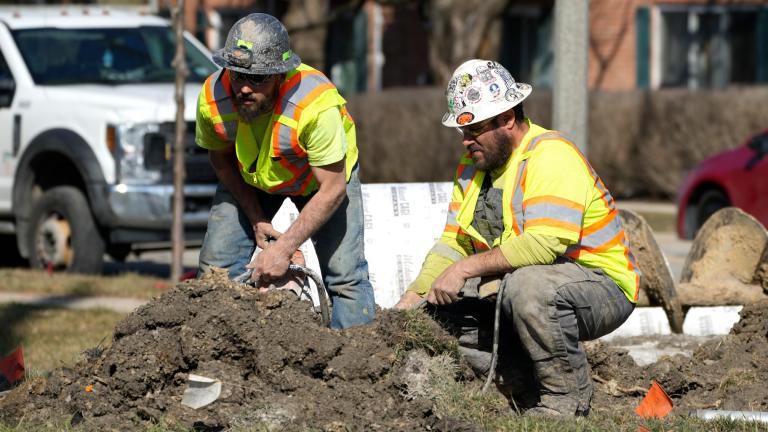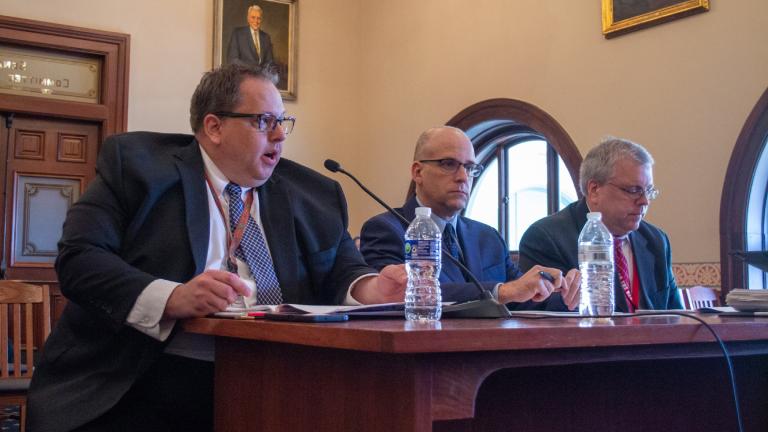Gig workers like ride-hailing drivers and delivery people are a key part of the modern U.S. economy. Most of those workers are contracted, and therefore not considered full employees with all the benefits included.
The Biden administration is proposing a rule making it harder to classify workers as contractual — with the hope it gives more people full employment status and the security, benefits and wages that go along with that.
“By classifying workers as independent contractors, employers like Lyft and Uber and other platform-based employers, are not required to follow any of the same federal laws or state or local laws that other employers do,” said Alison Dickson, a senior instructor at the University of Illinois Urbana-Champaign’s School of Labor and Employment Relations.
With the current classification, employers are not obligated to pay minimum wage, overtime or unemployment compensation, or follow any sort of sexual harrasment or unlawful termination cases.
“The flexibility comes at a premium, one could say,” Dickson adds.
Dickson believes that misclassification is a much bigger issue than it appears, and risks it spreading to other industries.
“When we see such a large segment of the economy taking advantage of these significant loopholes in the federal law, it only has wider implications for the greater economy,” Dickson said.
Lenny Sanchez, director of the Illinois Independent Drivers Guild and organizer for Justice App Workers, believes the intentions behind this proposal are good, but it might be missing the mark.
“There is a concern though here, if this classification were to be a reality, how would the applications respond?” he said.
“We have meetings with Uber and Lyft and they’ve told us if this classification were to pass, they have told us that they would create a schedule,” he said. “It will be with blocks of hours that drivers would all have to race to reserve before they would run out. Once these reservations run out, they will not be able to log in.”
For the drivers that do gig work, they would potentially lose the flexibility that comes with remaining as a contract employee.
“I think that’s a real concern,” said JC Muhammad, a Lyft driver and volunteer with the Chicago Gig Alliance.
Muhammad has talked to many drivers and said there are other issues that workers are more concerned about.
“Diminishing pay, personal safety, due process when confronted with deactivations, and transparency in terms of how fares are broken down,” Muhammad said. “Those are the main issues that drivers in the Chicago market are really focused on.”
Currently, the Chicago Gig Alliance is trying to address these issues with an ordinance that was introduced in March to increase wages and transparency for Chicago drivers, and cap corporation cuts.
Muhammad believes there are some steps that the state can pursue before this new federal rule comes to play, like “(trying) to address some of the more pressing concerns that people who are in this industry face right now.”
Sanchez believes that regardless of what the federal government wishes to achieve with this proposal, states can step up and protect their gig workers.
“Every worker deserves to have benefits, collective bargaining rights, etc.” Sanchez said. “Just like we see Starbucks, Amazon, and all these other workers unionizing, Uber, Lyft, Doordash drivers, all of us we need to union today and we can do that through the state level.”








